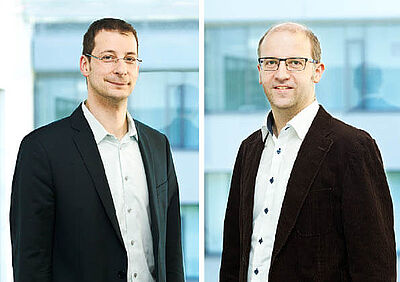In many areas, the use of nanotechnologies has become indispensable today to achieve effective and energy-efficient results - also within IT. However, this interface between hardware and software has repeatedly become the target of attacks in recent years.
The joint research project "RAINCOAT - Randomization in Secure Nano-Scale Microarchitectures" by Prof. Tim Güneysu (Chair of Security Engineering, HGI/ PI in the CASA Cluster of Excellence) and Prof. Lucas Davi (Chair of Secure Software Systems, University of Duisburg-Essen/ PI in the CASA Cluster of Excellence) aims to make the technology more secure at the micro-architecture level. The research duo is now being funded by the German Research Foundation (DFG) as part of the priority program "Nano-Security" from 2020 to 2023.
Focus on randomization techniques
Within the project, the scientists are addressing two challenges: On the one hand, they want to develop effective countermeasures against the manifold possibilities of attack at the microarchitectural level. On the other hand, they have set themselves the task of reflection on the new functions in the context of the latest nanotechnology. In doing so, they focus on randomisation, while taking into account the special requirements of nanotechnology.
These randomization techniques rely on the dynamic rearrangement of memory areas in the CPU cache and RAM so that attackers cannot draw conclusions based on fixed memory information.
For the Priority Programme "Nano-Security", the DFG had called for proposals in September 2019. It is designed to run for six years. (Find more information here.)
General note: In case of using gender-assigning attributes we include all those who consider themselves in this gender regardless of their own biological sex.


